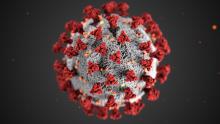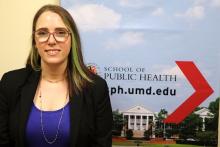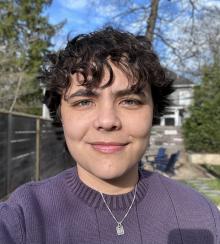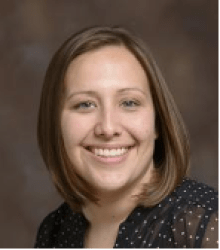Supporting the Development and Health of LGBTQ Young People

The Sexual Orientation, Gender Identity, and Health (SOGI Health) Research Group is affiliated with the Department of Family Science and the University of Maryland Prevention Research Center. The research group convenes faculty, students, and community partners in an effort to better understand and support the positive development and health of LGBTQ young people.
Department: Family Science
Room Number: 1142W
Director: Jessica Fish
Office Phone Number: (301) 405-4008
Email: jnfish@umd.edu
People: Jessica Fish (PI), Mia Smith-Bynum (co-I), Pond Ezra, Leah Young
Funding: Lesbian Health Fund (GLMA); The Maryland Catalyst Fund (UMD)
This project explores the potential protective effects of positive parental messaging regarding LGBTQ+ identities and whether these practices buffer the negative effects of LGBTQ-related discrimination on mental health and substance use.
People: Jessica Fish (PI), Devlon Jackson, Sandra Saperstein, Ariel Balaban, Leah Young, Sydney McFarlane, Joi Kenner, Carter Carter, Victoria Ledford, and Cynthia Baur (co-I),
The Implementing Tobacco Control Strategies to Achieve Health Equity: Engaging LGBTQ Communities in Maryland project aims to reduce tobacco-related health disparities in lesbian, gay, bisexual, transgender, and queer/questioning (LGBTQ) communities in Prince George’s and Montgomery County by developing comprehensive strategies in collaboration with groups that are inclusive of and reach LGBTQ communities. The UMD team will work in partnership with local community organizations, health departments, and state tobacco and control officials to develop, disseminate, and evaluate LGBTQ-inclusive tobacco prevention and control efforts in PG and Montgomery County.
Click here to view our Community Health Needs Assessment.
Publications:
- Ledford, V. A., Cosavalente, H. P. G., Jackson, D. N., Carter, C., Saperstein, S. L., Baur, C., … Fish, J. N. (2024). An Almost Empty Scoping Review: State of the Research on Tobacco Prevention and Cessation Messaging Strategies for Black and/or Latine LGBTQ+ Youth and Young Adults. Health Communication, 1–15. https://doi.org/10.1080/10410236.2024.2370725
People: Jessica Fish (PI), Lauryn Dunkwu, Sydney McFarlane
Funding: MPRC Seed Grant, FSRA Grant
This project seeks to identify how LGBTQ-focused state policies are associated with youth health (e.g., substance use, mental health) and related experiences (e.g., victimization). As part of this work, we also explore different approaches to measuring policy and climate in association with LGBTQ youth health.
People: M. D. Bishop (PI), Jessica Fish, Samantha A. Moran, Stephen T. Russell, Rodman E. Turpin, and Elizabeth M. Aparicio
Funding: National Institutes of Health (F32AA030194)
This multi-method project examines developmental differences in the prevalence and mechanisms of alcohol use among adolescents with diverse sexual orientations and gender identities. Through strategic dissemination efforts, the results of this project will address pressing public health concerns regarding sexual and gender minority youth alcohol use.
People: Long Doan (PI); Liana Sayer (co-I); Jessica Fish (co-I)
Funding: National Science Foundation (SES-2029963); University of Maryland Vice President for Research
The Assessing the Social Consequences of COVID-19 (ASCC) study examines the impacts of COVID-19 and social distancing efforts on behavior, time spent with others, use of technology, and mental and physical wellbeing, with a particular interest in how these effects vary by gender, sexuality, family structure, race/ethnicity, and immigrant status.
Publications:
- Fish, J. N., +Salerno, J., +Williams, N. D., Rinderknecht, G., +Drotning, K. J., Sayer, L., & Long, D. (2021). Sexual minority disparities in health and wellbeing as a consequence of the COVID-19 pandemic differ by sexual identity. LGBT Health,8(4), 263-272. https://www.liebertpub.com/doi/full/10.1089/lgbt.2020.0489. PMCID: PMC8213002.
- +Salerno, J. P., Doan, L., Sayer, L., +Drotning, K., +Rinderknecht, G., & #Fish, J. N. (in press). Changes in mental health and well-being are associated with living arrangements with parents during COVID-19 among sexual minority young persons in the US. Psychology of Sexual Orientation and Gender Diversity. https://doi.org/10.1037/sgd0000520.
- +Drotning, K., Doan, L., Sayer, L. C., Fish, J. N., & ·Rinderknecht, G. (in press). Not all homes are safe: Family violence during the COVID-19 pandemic. Journal of Family Violence. https://doi.org/10.1007/s10896-022-00372-y
People: Jessica Fish (M-PI), Ryan Watson (University of Connecticut)
Funding: NIH National Institute on Drug Abuse (1R03DA046827)
This study examines how sexual and gender minority youth experiences of distal and proximal minority stressors are associated with substance use (i.e., alcohol, tobacco, marijuana, and polysubstance use) and the potential protective influence of family and teacher support.
Publications:
- Mereish, E. H., ·Parra, L. A., Watson, R. J., & Fish, J. N. (2022). Subtle minority stress and depressive symptoms among sexual and gender minority adolescents of color: Mediating role of self-esteem and sense of mastery. Prevention Science, 23, 142-153. https://doi.org/10.1007/s11121-021-01294-9
- Poteat, V. P., Fish, J. N., & Watson, R. J. (2021). Gender-sexuality alliances as a moderator for the association between victimization, depressive symptoms, and drinking behavior among LGBTQ+ youth. Drug and Alcohol Dependence, 229(B), 109-140. https://doi.org/10.1016/j.drugalcdep.2021.109140. PMCID: PMC8665138
- Poteat, V. P., Watson, R. J., & Fish, J. N. (2021). Teacher support moderates associations among sexual identity outness, victimization, and academic performance among LGBQ+ youth. Journal of Youth and Adolescence, 50, 1634-1648. https://doi.org/10.1007/s10964-021-01455-7. PMCID: PMC8350887
- Watson, R. J., Fish, J. N., Poteat, V. P., Wheldon, C. W., +Cunningham, C. A., Puhl, R., & Eaton, L. A. (2021). Teacher support, victimization, and alcohol use among sexual and gender minority youth: considering ethnoracial identity. Prevention Science. 22, 590-601. https://doi.org/10.1007/s11121-021-01216-9. PMCID: PMC8195836
- Watson, R. J., Fish, J. N., Denary, W., +Caba, A., +Cunningham, C., & Eaton, L. A. (2021). LGBTQ state policies: A lever for reducing SGM youth substance use and bullying. Drug and Alcohol Dependence. 221,108659. https://doi.org/10.1007/s11121-021-01216-9. PMCID: PMC8026721
- Watson, R. J., Fish, J. N., +McKay, T., +Allen, S., Eaton, L., & Puhl, R. M. (2020). Substance use among a national sample of LGBTQ adolescents: Intersections of sex assigned at birth and gender identity. LGBT Health, 7(1), 37-46. https://doi.org/10.1089/lgbt.2019.0066. PMCID: PMC6983732.
- Watson, R. J., Fish, J. N., Poteat, V. P., & +Rathus, T. (2019). Sexual and gender minority youth alcohol use: Within-group differences in associations with internalized stigma and victimization. Journal of Youth and Adolescence, 48(12), 2403–2417. https://doi.org/10.1007/s10964-019-01130-y. PMCID: PMC6872943.
- Wheldon, C. W., Watson, R. J., Fish, J. N., & Garamel, K. (2019). Cigarette smoking among youth at the intersection of sexuality orientation and gender identity. LGBT Health, 6(5), 235-241. https://doi.org/10.1089/lgbt.2019.0005. PMCID: PMC6909748.
People: Bradley Boekeloo (PI), Jessica Fish (co-I), Elizabeth Aparicio (co-I), Richard Shin (co-I), Mia Smith-Bynum (co-I), Rodman Turpin (co-I)
The core research project is a randomized control trial focused on refining, evaluating, and disseminating selected resources for assessing and improving the experiences of LGBT people engaged in mental health care services. Want to know more, check out the University of Maryland Prevention Research Center.
Publications:
- Fish, J. N., King-Marshall, E. C., Williams, N. D., Aparicio, E. M., Tralka, H. M., & Boekeloo, B. O. (In press). What motivates community mental and behavioral health organizations to participate in LGBTQ+ cultural competency trainings? American Journal of Orthopsychiatry. Advanced online publication. https://doi.org/10.1037/ort0000641.
- Fish, J. N. & Mittal, M. (2021). Mental health care providers are essential to the public health workforce and need support in the wake of COVID-19. Public Health Reports, 136(1), 14-17. https://doi.org/10.1177/0033354920965266. PMC7856369
- Turpin, R., Williams, N., Akré, E. R., Boekeloo, B., Fish, J. N. (2022). Trends in health care access and experiences: Differential gains across intersections of sexual identity and sex post-marriage equality. International Journal of Environmental Research and Public Health, 15, 5075. Advanced online publication. https://doi.org/10.3390/ijerph19095075. PMC9101359
- Fish, J. N., Turpin, R., Williams, N. D., & Boekeloo, B. O. (2021). Sexual identity differences in health care access and satisfaction: Findings from nationally representative data. American Journal of Epidemiology.190(7), 1281-1293. https://doi.org/10.1093/aje/kwab012. PMC8522766
- Turpin, R., Williams, N. D., Akré, E. R., Boekeloo, B. O., & Fish, J. N. (2021). Differences in health care access and satisfaction across intersections of race/ethnicity and sexual identity. Academic Medicine, 96(11), 1592-1597. https://doi.org/10.1097/ACM.0000000000004243. PMC8867382
- Williams, N. D., Akre, E. R., Turpin, R., Boekeloo, B. O., & Fish, J. N. (2022). Sexual identity differences in mental healthcare need and access: Findings from nationally representative data. Psychiatric Services, 73, 456-459. https://doi.org/10.1176/appi.ps.202100045. PMC9213076
People: Natasha D. Williams (PI), Jessica Fish (Committee Chair)
Funding: RWJF Health Policy Research Scholars
This multi-method dissertation project examines mental health disparities (Study 1) and treatment utilization patterns (Study 2) at the intersection of sex, sexual identity, and race/ethnicity using population-based health data. Study 3 employs grounded theory methods to develop a conceptual model of how and why Black LGB young adults manage their mental health within, or outside of , traditional systems of care.
Jessica Fish (she/her/hers)
Associate Professor, Family Science
Co-Director, University of Maryland Prevention Research Center
Dr. Jessica Fish is a human development and family science scholar whose research focuses on the health and well-being of sexual and gender minority (i.e., lesbian/gay, bisexual, and transgender) people and their families. Broadly, Dr. Fish studies the socio-cultural and interpersonal factors that shape the development and health of sexual and gender minority youth and adults. Her overarching goal is to identify modifiable factors that contribute to sexual and gender minority health disparities in order to inform developmentally-sensitive policies, programs, and prevention strategies that promote the health of sexual and gender minority people across the life course.
Post Docs
M. Bishop (they/them)
M. Bishop, PhD, is a postdoctoral research fellow in the department of Family Science at the University of Maryland, College Park. Their research leverages approaches at the nexus of developmental science, public health, and demography to understand the health and wellbeing of sexual and gender minority people across the life course. Dr. Bishop is interested in the developmental and intersectional contexts that shape relations between identity development, minority stress, and health among sexual and gender minority youth. Dr. Bishop’s current NIH-funded research examines developmental differences in alcohol use and misuse among youth at the intersection of gender, sexuality, and race/ethnicity. The goal of Dr. Bishop’s research is to inform programs and policies aimed at eliminating inequities experienced by sexual and gender minority people. Dr. Bishop holds a Ph.D. in Human Development and Family Science from the University of Texas at Austin.
Graduate Students
Samantha Moran, LMSW (she/her/hers)
Samantha is a Family Science doctoral student from Long Island, NY. She holds a B.S. in Family Science and Sociology from Towson University and an M.S.W. from the University of Maryland, Baltimore. During her M.S.W program, Samantha was a clinical behavioral health intern at Chase Brexton's Center for LGBTQ Health Equity. Currently, she is a Project Manager in the Psychology Department at UMBC where her research team develops and conducts trainings on various maternal and child health topics including substance use, mental health, parenting, and substance-exposed newborns. Samantha's research interests include the experience of sexual and gender minority youth in the context of the school system, and the importance of creating safer environments, inclusive curricula, and supportive measures that empower teachers and staff to affirm students. In her free time, she enjoys live music, long walks, reading thrillers, and visiting new coffee shops.
Pond (they/them/theirs)
Pond Ezra is a third-year doctoral student in Family Science whose research focuses on pregnancy, birth, and parenting experiences among gender minorities. Specifically, they wish to explore how transgender parents, specifically seahorse dads, navigate parenting roles after birth; the contexts in which gender dysphoria affects pregnancy and birthing experiences; and the contextual factors that may contribute to trajectories in mental health across the perinatal period among gender minority people. Pond is currently leading a project that examines sexual minority youth's perceptions of their interactions and relationships with heterosexual fathers to better understand how tensions between masculinity and queerness can influence parent-youth dynamics. Additionally, Pond works on related projects that examine sexual socialization messages being sent and received by sexual and gender minority youth in heterosexual-headed families.
Lauryn Dunkwu (she/her)
Lauryn Dunkwu is a first-year PhD student in Behavioral and Community Health at the University of Maryland, College Park. She holds an undergraduate degree in Medical Biochemistry from the University of Benin, Nigeria, and a Masters in Public Health from the University of Maryland, College Park. Following her undergraduate studies, Lauryn supported programs in Health Systems Strengthening, Sexual & Reproductive Health, Infectious Disease, and Outbreak & Emergency Response across West Africa. She has also served as a Delivery Analyst at the Tony Blair Institute for Global Change, bringing problem-solving and analytical skills to the organization’s Government Advisory projects.
Currently, Lauryn is a Graduate Assistant with the Global Health Initiative (GHI) at UMD and a Volunteer Researcher with the SOGI Health Lab. Her research interests are focused on the impact of health policies on the health outcomes of lesbian, bisexual, and transgender (LBT) women, particularly in low- and middle-income countries (LMICs). Additionally, Lauryn is interested in investigating how community health workers (CHWs) can bridge workforce gaps to enhance health access and quality in underserved regions, aligning with her broader interest in Global Health.
Outside of her professional and academic pursuits, Lauryn enjoys video games, cheering for her favorite soccer team, and unwinding by a campfire.
S.D. Murry (they/them)
S.D. Murry is a doctoral student in Family Science whose research focuses on mental health and substance use disorder treatment design, implementation, and evaluation for LGBTQIA+ peoples, especially for those with gender minority identities. S.D. is partnering with Dr. Mariana Falconier on the TOGETHER Program as a Research Assistant (RA) and works with Dr. Jessica Fish's Sexual Orientation Gender Identity Health Lab and the University of Maryland Prevention Research Center. They have been a licensed social worker for over 10 years, providing outpatient mental health and substance use disorder treatment, and currently offer telehealth therapy to LGBTQIA+ community members; and are a board-certified supervisor for both mental health and substance use disorder clinicians. S.D. holds an A.A.S. in Human Services from Anne Arundel Community College, a B.S. in Social Work from UMBC, and an M.S. in Social Work from the University of Maryland, Baltimore.
Leah Young (she/her)
Leah is a second-year MPH student concentrating in Health Equity. Her research interests include understanding the relationship dynamics of those in ethically non-monogamous relationships, their sexual health behaviors, and how psychology of interpersonal relationships theories can be applied to them. In addition, she is also interested in what the implications are for child development when growing up in ENM families. In her free time, Leah likes to see old foreign films, visit art museums, and take naps with her cat, Oscar.
Denise Burroughs (they/she)
Denise Burroughs is a second-year Master of Public Policy student and a 2022 University of Maryland graduate. As a graduate student, Denise studies the intersections of social, health, and education policy to highlight the public health benefits of comprehensive sexual health education.
Denise works with the SOGI research group through the Thurgood Marshall Research Fellowship to develop a project that examines the potential relationship between youth sexual health disparities in Maryland and the sexual health education policies of the state's school districts. Additionally, they intern with the Colorado Department of Public Health and the Environment's Comprehensive Human Sexuality Education (CHSE) Grant Program where they research and design community engagement strategies that can support the implementation of culturally sensitive CHSE in schools.
Inspired by her passion for LGBTQIA+ rights, Denise aspires to work as a communication and policy specialist to increase queer youths' access to anti-racist, anti-oppressive sexual health education. In their free time, Denise enjoys hiking, collecting houseplants, listening to folk music, and solving puzzles.
Undergraduate Students
Sydney McFarlane (she/her)
Sydney is a junior public health science major and Banneker Key scholar at University of Maryland. She has completed her honors citation as a student of UMD’s Honors Humanities program. Sydney also works on campus as a student supervisor at the university’s Service Center (4WORK). Her research interests include minority health, policy, and improving the American healthcare system. Outside of lab and school, Sydney can be found reading classics, practicing mindfulness techniques, or reviewing films on her letterboxd.
Heron Bondoc (any pronouns)
Heron is a junior majoring in Public Health Science with a minor in Science, Technology, Ethics, and Policy (STEP). They are a former Life Sciences Scholar and currently a member of the UMD Federal Fellows program. Heron's research interests lie at the intersection of law and health through legal epidemiology, gender-affirming care for trans youth, Asian-American mental health, and global health issues in developing countries. Other than studying and research, Heron can be seen playing multiple instruments in their band, attending Asian cultural events, going to a lot of concerts, and writing a lot of poetry.
Joi Kenner (she/they)
Joi is a sophomore majoring in Public Health Practice with an interest in HIV education, sexual health, and health equity research. They contribute to the field as a Peer Health Educator for the Prince George's County HIV/STI Outreach Program (PGCHOP) and as an undergraduate research assistant on projects addressing underserved communities. Joi is also part of their department's honors program, serves on the Dean’s Student Advisory Council (DUSAC), and facilitates Black Queer Students (BQS) under the Pride Alliance on campus. With a passion for advancing sexual health awareness and global health initiatives, they plan to pursue doctoral studies in public health, focusing on innovative strategies to reduce sexual health stigma and improve access to reproductive healthcare. Outside of research, they enjoy reading collections of essays, exploring classic Black theory, and playing board games.
Affiliates
Natasha Williams, MS, LMFT (she/her/hers)
Natasha Williams is a Chicago-based doctoral candidate in Family Science whose research focuses on the mental health of LGBTQ+ people. Specifically, she explores the mental health experiences of Black queer folx as well as factors that influence access to affirming mental health care. Natasha holds a license to practice marriage and family therapy and works part-time doing program evaluation for progressive, mission-driven organizations. She has been the TA or instructor of record for courses in statistics; family inequality; human sexuality; and behavior disorders. She holds an M.S. from Purdue University Northwest and a B.S. from Florida State University. In her free time, Natasha enjoys spending time outdoors, experimenting with global cuisines, reading fiction, and watching football.
Carter Carter (he/they)
Carter is a data-driven researcher interested in the LGBTQ+ population. He has an MPH in Biostatistics from the University of Maryland. He works as a data analyst on multiple projects, such as addressing tobacco-related disparities in Black and Latinx youth and young adults in Prince George's and Montgomery counties and developing county-level reports on YRBS data. Broadly, his research interests include gender-diverse people, gender-affirming practices, and trans experience. In his free time, he enjoys cooking from his diverse background and going to the gym.
Bishop, M., Fish, J. N., & Russell, S. T. (in press). The developmental collision hypothesis: An empirical test with three generations of sexual minority youth. Journal of Youth and Adolescence. https://doi: 10.1007/s10964-024-02075-7
Caba, A., Wheldon, C., Watson, R. J., & Fish, J. N. (in press). The association of stigma, school, and family factors with patterns of substance use among LGBTQ Youth. Prevention Science. Advanced online publication. https://doi:10.1007/s11121-
Ledford, V., Garcia Cosavalente, H. P., Jackson, D. N., Carter, C. T., Saperstein, S. L., Baur, C., Balaban, A., & Fish, J. N. (in press). An almost empty scoping review: State of the research on tobacco prevention and cessation messaging strategies for Black and Latino/a/x LGBTQ+ youth and young adults. Health Communication. Advanced online publication. https://doi: 10.1080/10410236.2024.2370725
Bishop, M., Fish, J. N., & Russell, S. T. (in press). The timing of sexual identity development milestones: Disentangling age from cohort influences. Psychology of Sexual Orientation and Gender Diversity. Advanced online publication. https://doi.org/10.1037/
Fish, J. N., Reczek, R., & +Ezra. P. (in press). Defining and measuring family: Lessoned learned from LGBTQ+ people and families. Journal of Marriage and Family [mid-decade special issue]. Advanced online publication. https://doi.org/10.1111/jomf.
Paceley, M. S., Watson, R., Fish, J. N., Clayton, J., Ramseyer Winter, V., Kattari, S., Walter, S. (in press). The relationship between the family environment and community context on LGBTQ+ youth’s disordered eating behaviors. Families in Society. https://doi.org//10.1177/
Bishop, M., Moran, S. A., Turpin, R. E., Aparicio, A. M., Mereish, E. H., Russell, S. T., & Fish, J. N. (2024). Binge drinking disparities by grade, race and ethnicity, sexual orientation, and gender identity. Pediatrics. e2023063978. https://doi.org/10.1542/peds.
Kiekens, W. J., van der Ploeg, R., Fish, J. N., Salway, T., Kaufman, T. M. L., & Baams, L. (2024). Trends in bullying victimization and social unsafety for sexually and gender diverse students. Journal of Youth and Adolescence, 53, 1579-1592. https://doi.org/10.
Bishop, M. D., Caba, A., Watson, R. J., Fish, J. N. (2024). Chest binding: Sociodemographic characteristics among a national sample of transgender and gender diverse adolescents. Journal of Adolescent Health, 74, 1256-1259. https://doi.org/10.1016/j.
Fish, J. N., King-Marshall, E. C., Turpin, R. E., Aparicio, E. M., & Boekeloo, B. O. (2024). Assessing the implementation of an LGBTQ+ mental health services raining program to determine feasibility and acceptability during the COVID-19 pandemic. Prevention Science, 25, 109-123. https://doi.org/10.1007/
Williams. N. D., Winer, B., Aparicio, E. M., Smith-Bynum, M. A., Boekeloo, B. O., Fish, J. N. (2024). Professional expectations of provider LGBTQ competence: where we are and where we need to go. Journal of Gay & Lesbian Mental Health, 28. https://doi.org/10.1080/
Boekeloo, B. O., Fish, J. N., Turpin, R. E., Aparicio, E. A., Shin, R., Vigorito, M. A., Lare, S. M., McGraw, J. S., & King-Marshall, E. (2023). LGBTQ+ cultural-competence training effectiveness: Mental health organization and therapist survey outcome results from a pilot randomized controlled trial. Clinical Psychology & Psychotherapy, 31, e2893. https://doi.org/10.1002/cpp.
Fish, J. N., Kapostasy, S., & Russell, S. T. (2023). Be You! Collaborative community research efforts to empower LGBTQ+ youth in school settings. Journal of Gay and Lesbian Social Services, 35, 434-455. https://doi.org/10.1080/
Fish, J. N. & Ezra, P. (2023). Parental support is not enough: How parental socialization theories can advance LGBTQ+ youth family research, practice, and health. Journal of Family Theory and Review, 15, 677-684. https://doi.org/10.1111/jftr.
Fish, J. N., Bishop, M. D., & Russell, S. T. (2023). Age trends in bias-based bullying and mental health by sexual orientation and gender identity. Prevention Science, 24, 1142-1151. https://doi.org/10.1007/
Salerno, J. P., Pease, M., Gattamorta, K. A., Fryer, C. S., & Fish, J. N. (2023). Impact of racist microaggressions and LGBTQ-related minority stressors: Effects on psychological distress among LGBTQ+ young people of color. Preventing Chronic Disease, 20, E63. https://doi.org/10.5888/pcd20.
Russell, S. T., Bishop, M. D., & Fish, J. N. (2023 [invited]) Expanding Notions of LGBTQ+. Annual Review of Sociology, 49, 281-296. https://doi.org/10.1146/
Pollitt, A. M., Fish, J. N., & Watson, R. J. (2023). Measurement equivalence of family acceptance/rejection among sexual and gender minority youth by disclosure status. Journal of Family Psychology, 37(2),195-202. https://doi.org/10.1037/
Fish, J. N. & Russell, S. T. (2022). The paradox of progress for sexual and gender diverse youth. Current Opinions in Psychology, 48, 101498. https://doi.org/10.1016/j.
Mereish, E. H., Fish, J. N., & Watson, R. J. (2023). Intersectional minority stress and alcohol, tobacco, and marijuana use among youth of color: Moderating role of family support. LGBT Health, 10, 18-25. https://doi.org/10.1089/lgbt.
Fish, J. N., King-Marshall, E. C., +Williams, N. D., Aparicio, E. M., Tralka, H. M., & Boekeloo, B. O. (2022). What motivates community mental and behavioral health organizations to participate in LGBTQ+ cultural competency trainings? American Journal of Orthopsychiatry, 92, 647-656. https://doi.org/10.1037/
M. Bishop, PhD uncovers disparities in binge drinking between LGBTQ+ and cisgender, heterosexual youth in new study.
Jessica Fish, PhD named Co-Director of University of Maryland Prevention Research Center. In her new role, Dr. Fish is focused on developing and overseeing the center’s external communications, partnerships, student engagement and strategies for translation research growth and sustainability.
New Project Aims to Reduce Tobacco Use Among Maryland’s LGBTQ Community
The UMD Prevention Research Center will partner with local community organizations, health departments, and state tobacco and control officials on an intervention to prevent tobacco use among LGBTQ people in Prince George’s and Montgomery Counties.
Gender Affirming Policies Support Transgender and Gender Diverse Youth’s Health
The science is clear: transgender and gender diverse youth who have access to gender affirming care, particularly in schools, have better mental health and academic outcomes. Gender affirming care includes access to medical and school resources, a new statement of evidence from the Society for Research in Child Development says.
University of Maryland New Directions Seed Grants Support New Research
The University of Maryland has announced seven New Directions awards to support research across the College Park campus. The projectsspan a broad range of disciplines and topics, ranging from the documentation of community heritage to the discovery of atomic catalysts.
UMD study says gender-affirming policies benefit student mental health
Gender-affirming policies can improve students’ mental health, according to a report co-led by Jessica Fish, a University of Maryland assistant professor in the family science department. “The science is quite clear: youth who are able to access gender-affirming treatments, and youth who are able to participate in sports that align with their gender identity … tend to fare better in their mental health and overall well-being,” said Fish, co-lead and deputy director for research and evaluation at the University of Maryland Prevention Research Center.
UMD Prevention Research Center hosts lecture on LGBTQ+ safety in schools
The University of Maryland Prevention Research Center hosted a webinar to share the work of the Stories and Numbers Project, a collaboration that promotes the safety and wellbeing of LGBTQ+ youth in schools.
Dr. Jessica Fish, an assistant professor in the Department of Family Science, has been busy. In recent months, she has published a slew of articles on LGBTQ+ mental health and substance abuse and has received multiple research grants from institutions like the National Institutes of Health.
Editorial: Sexual Orientation and Gender Identity Change Efforts are Unethical and Harmful
Two experts in LGBTQ and young adult mental health, Dr. Jessica Fish (UMD SPH) and Dr. Stephen T. Russel (UT, Austin) describe the serious harms that LGBTQ youth experience from so-called “conversion therapy” efforts in a new editorial published in the American Journal of Public Health.
Don Milton and Jessica Fish Receive Seed Grants for COVID-19 Research
Don Milton, professor of environmental health, and Jessica Fish, assistant professor of family science, each received seed grants from the UMD Division of Research for COVID-19-related research.
UMD Prevention Research Center Appoints New Executive Leaders
To advance its mission to support LGBTQ+ mental health, the University of Maryland Prevention Research Center (UMD-PRC) has appointed Dr. Elizabeth Aparicio, assistant professor of behavioral and community health as the Deputy Director of Clinical Training and Intervention and Dr. Jessica Fish, assistant professor of family science as Deputy Director for Research and Evaluation.
In the past few months, Dr. Jessica Fish, an assistant professor in the Department of Family Science has published a slew of articles on LGBTQ+ mental health and substance abuse and has received multiple research grants from institutions like the National Institutes of Health.
The University of Maryland Prevention Research Center (UMD-PRC) is working to improve mental health and health care for LGBTQ+ people with new funding from the U.S. Centers for Disease Control and Prevention (CDC).
Recent SOGI Health News Articles

M. Bishop, PhD uncovers disparities in binge drinking between LGBTQ+ and cisgender, heterosexual youth in new study.
LGBTQ+ middle and high school students report binge drinking at younger ages and higher rates than their cisgender, heterosexual peers, according to a study in Pediatrics. The study analyzed data from over 925,000 California students and found significant disparities, particularly among transgender and ethnic minority students. These differences are attributed to "minority stress" from stigma and discrimination. Dr. Bishop suggests that pediatricians can help by creating more inclusive environments to address this issue.

Jessica Fish, PhD named Co-Director of University of Maryland Prevention Research Center
In her new role, Dr. Fish is focused on developing and overseeing the center’s external communications, partnerships, student engagement and strategies for translation research growth and sustainability.

New Project Aims to Reduce Tobacco Use Among Maryland’s LGBTQ Community
The UMD Prevention Research Center will partner with local community organizations, health departments, and state tobacco and control officials on an intervention to prevent tobacco use among LGBTQ people in Prince George’s and Montgomery Counties.

Gender Affirming Policies Support Transgender and Gender Diverse Youth’s Health
The science is clear: transgender and gender diverse youth who have access to gender affirming care, particularly in schools, have better mental health and academic outcomes. Gender affirming care includes access to medical and school resources, a new statement of evidence from the Society for Research in Child Development says.
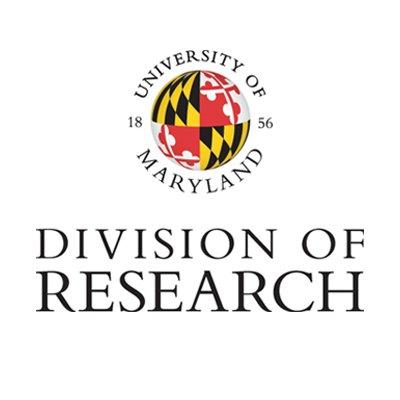
University of Maryland New Directions Seed Grants Support New Research
The University of Maryland has announced seven New Directions awards to support research across the College Park campus. The projects span a broad range of disciplines and topics, and includes a project led by Jessica Fish on Identifying Parental Sexual Orientation Socialization Strategies.




